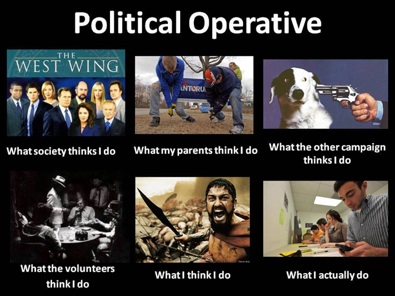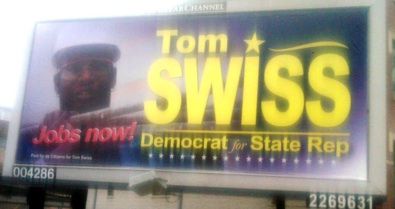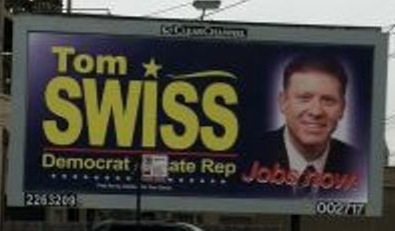* Up until yesterday, Gov. Pat Quinn has been hedging on whether he’d support a gay marriage bill. From the AP…
Illinois Gov. Pat Quinn says he doesn’t know if he would support legislation that would give same sex couples the same rights as heterosexual couples.
The Democrat supported same sex civil unions, which became legal in Illinois last summer. However, he said [Tuesday] he wants to study issues surrounding same-sex marriage before he makes a decision.
The governor said Tuesday that he hadn’t yet looked at a proposal for gay marriage, but said he would. He talked about how he helped pass and then signed the civil unions bill into law. Quinn said it was “important to monitor that, and study” the new law’s impact and said he wanted to let the legislative process work. Listen…
* Before the 2010 election, Quinn said he wasn’t opposed to a gay marriage bill…
Quinn said wasn’t opposed to legalizing gay marriage in Illinois. He said he wouldn’t “stand in the way, if “the voters of Illinois want to have it come to pass.
The governor has since been on the receiving end of tons of criticism by his Catholic Church for using his religion to justify his position on civil unions. So, it was easy to see why he was hedging.
* But, yesterday Quinn was finally pinned down by WBEZ’s Steve Edwards. After mentioning that Mayor Rahm Emanuel supports same sex marriage and would “push for it,” Quinn started rambling about how he’d helped pass the civil unions bill and how the legislative process had to work, but Edwards kept gently pressing and Quinn finally said this…
“I look forward to working with the advocates on this issue to build a majority.”
Edwards followed up by saying that it sounded like Quinn would help pass a same sex marriage bill. Quinn’s response…
“I think I just said that without me the last bill, civil unions, wouldn’t have passed. You gotta work with members from all parts of Illinois, every part of our state, some parts are more liberal than others, and ultimately we’ll get to Heaven.”
…Adding… I mentioned this in comments, but it probably bears repeating here as well. Quinn uses the “get to Heaven” phrase all the time on a myriad of things. He wasn’t equating gay marriage with Heaven. It’s just one of his quirks.
Listen…
* If I haven’t said it before, I’ll say it now: Steve Edwards is a great interviewer. He clearly listens to his subjects and isn’t just thinking about the next question. Frankly, it’s a bit off-putting that the rest of Illinois’ media hasn’t yet caught on to the two significant stories he broke with this one Quinn interview. Good job, Steve.
43 Comments  
|
Trib paper goes all Larry Flynt on us
Thursday, Feb 16, 2012 - Posted by Rich Miller
* The Tribune itself played this story kind of straight, although the usual problems with over-blowing a bill which was just introduced and has no co-sponors are clearly evident…
Illinois already charges so-called sin taxes on smokes, booze and casino gambling. Now state lawmakers are thinking about imposing a $5 skin tax to get into strip clubs.
Club owners are in an uproar, arguing that the tax might put smaller strip joints out of business and throw dancers, bartenders, bouncers and valet attendants out of work. They worry that some customers already are fed up with admission fees, let alone taxes on top.
You have to read way down for this…
The legislation is in an early form and could change
As noted above, the bill has just one sponsor. It hasn’t even been assigned to a committee yet.
* But check out the RedEye’s front page today. Click for a larger pic if you dare…

I won’t even get in to the two “columns” the Tribune Co. paper published on the topic.
Stay classy, Mother Tribune.
And let’s just hope Politico doesn’t see that front page and stupidly assume that there is a real bill to tax, um, posteriors.
Keep it clean in comments, people. This ain’t TribCo. Thanks.
35 Comments  
|
Question of the day
Thursday, Feb 16, 2012 - Posted by Rich Miller
* The underlying data used in this study was never released, so we have to take their word for it that all the numbers are accurate and complete…
A new study lists Illinois as the third most corrupt area in the nation, and Chicago as the most corrupt city, and experts in the state say Illinois has earned those titles.
The report, released at a Wednesday statehouse news conference, details a study from the University of Illinois in Chicago, or UIC, and University of Illinois’ Institute of Government and Public Affairs in Champaign.
Only Louisiana and the District of Columbia have more corruption convictions per capita than Illinois. Chicago leads all cities in the United States in corruption convictions, where defendants are either elected officials or public money is involved, according to the report. […]
Only two other states have seen more of these convictions than Illinois in the past 36 years. California reported 2,345 convictions and New York had 2,522. Because the study makes the comparisons on a per-person basis and these two states have larger populations than Illinois, California and New York received lower rankings.
Illinois has around 12.8 million residents and averages 1.42 convictions per 10,000 residents.
* The Question: Our new state slogan?
52 Comments  
|
It goes deeper than Flider
Thursday, Feb 16, 2012 - Posted by Rich Miller
* We’ll get to more on the Bob Flider controversy in a second, but the end of today’s SJ-R editorial needs to be talked about first…
Contrast the support Flider now is receiving from the administration to that of Chicago Ald. Joe Moore, Quinn’s prospective nominee to head the Illinois Environmental Protection Agency. Moore has not even been announced as a nominee, but has been lobbying state senators on his own to drum up support for a potential nomination. A coalition of business groups, meanwhile, has organized an effort in opposition to Moore’s appointment — all this before he’s even been nominated. In the meantime, the IEPA is working its way through its second interim director. The same story applied at the Department of Insurance until a recent permanent appointment was made.
And then there was Jonathon Monken, who was 29 and had no previous police experience when Quinn chose him in 2009 to head the Illinois State Police. Monken had no chance of confirmation by the Senate and finally resigned — when it appeared the state no longer had legal authority to continue paying him — to take the helm of the Illinois Emergency Management Agency last year.
From our perspective, all this adds up to a rather haphazard pattern of assembling leadership in some of the most important jobs in state government. It doesn’t inspire confidence in this administration’s overall management, and it certainly doesn’t help those, like Flider, who are tossed into it.
The vast majority of the governor’s appointments have been non-controversial. But the SJ-R is right that Quinn’s process is just too haphazard. I happen to like Bob Flider. If he surrounds himself with decent people, he’ll probably do OK. But agriculture is such a hugely important industry in Illinois that appointing somebody with a lot more direct ag and/or export experience would’ve been preferable here, despite what the governor’s office claims…
Brooke Anderson, Quinn spokeswoman, called Flider extremely well-versed in exports, rural broadband development and farming. “The governor makes his decisions based on an individual’s records in public service,” Anderson said.
* On to the controversy. As expected, the appointment has given Republicans a chance to bring up the tax hike again and given reporters a reason to write more stories about said tax hike. Republican Party Chairman Pat Brady was the most outspoken…
“This is just another ‘Quinn Pro Quo,’” said Brady. “Governor Quinn and his Democratic pals thought they could wait a year for no one to remember Bob Flider’s lame duck, late night flip-flop on Pat Quinn’s 66% tax hike but our state’s economy is still suffering the consequences of Flip Flop Flider’s ‘Quinncidence.’”
“Agriculture is one of our state’s most important industries. It’s an insult to every Illinois farmer who has to pay taxes that the Governor would appoint an Agriculture Director who would oppose a proposed tax hike when he was running for re-election but then cast the deciding vote for an even larger tax hike just a few months later,” said Brady. “What key agriculture issues will Flider flip-flop on for political expediency?”
* Rep. Adam Brown (R-Decatur) defeated Flider in 2010 and also weighed in…
“It’s a slap in the face to my background because I am a fifth-generation family farmer, somebody that truly prides himself on advancing agriculture across the state” Brown said. “But to take a look at former Rep. Flider’s background in agriculture, I think it leaves something to be desired.”
Rep. Brown doesn’t list any income from that family farm on his Statement of Economic Interest.
* Flider defended himself…
In an interview Wednesday, Flider said his experience representing farming communities and large agricultural businesses like Archer Daniels Midland and Tate & Lyle give him the ability to carry out Quinn’s mission of boosting exports, expanding broadband and developing rural Illinois.
“I hope he looked at my track record of working hard,” Flider said. “I trust the governor knew my work ethic.”
Flider, 54, said he never talked to Quinn about getting a job based on his vote on the tax hike.
“It was never part of the discussion,” Flider said.
* Expect some, but not all, Senate Republicans to make loud noises…
Republicans on the Senate Executive Appointments Committee said they will be looking into whether the appointment is payback for Flider’s support of the tax hike.
“It is certainly going to come up,” said Sen. Tim Bivins of Dixon, the ranking Republican on the committee. “The governor is creating an appearance by repeatedly doing this.”
“It certainly has an appearance that doesn’t look good,” said Sen. Dave Luechtefeld, R-Okawville. “I really don’t know what kind of background he has in agriculture.”
Sen. Larry Bomke, R-Springfield, doesn’t serve on the committee, but said he might be able to support Flider if the nomination goes to the full Senate.
“There’s always the concern of quid pro quo, but we don’t know if that is the case here, and we hope that it isn’t,” Bomke said. “The only question I have is his experience or lack of experience. I think he will probably be OK as ag director. I think he will be professional.”
25 Comments  
|
Perception and reality
Thursday, Feb 16, 2012 - Posted by Rich Miller
* I’m not sure what these things are called, but there are a ton of them on every different topic imaginable and they’re making the rounds. I posted one about lobbyists in the subscriber section this morning and then a political type sent me this. Click the pic for a larger image…

Discuss.
20 Comments  
|
* Gov. Pat Quinn told WBEZ’s Steve Edwards yesterday that he will propose closing “quite a few” state facilities in his upcoming budget address, including some youth prisons.
Quinn didn’t say how many state facilities would be closed, but he did say “a couple” of youth prisons are on the chopping block.
* The governor also got in some digs at legislators who demand budget cuts, but don’t want their districts’ facilities closed.
“Now, legislators in those particular areas, you know, they don’t like that, Democrat and Republican,” Quinn said. “The bottom line is you can’t have legislators saying ‘Cut spending, cut the budget,’ and then when a facility that’s obsolete…” and then he trailed off without finishing his thought. But then he got himself back on track.
“You have to make some sound decisions,” Quinn said. “I have the courage to back them up and this budget year will go forward with facility closures in a variety of places.”
Listen…
All those Republicans who bitterly complained about a lack of specificity in Quinn’s State of the State address may wind up bitterly complaining next week about the specifics of facility closures in their districts.
Discuss.
51 Comments  
|
*** UPDATED x1 *** Who’s smearing whom?
Thursday, Feb 16, 2012 - Posted by Rich Miller
* Yesterday, I received a call from a Republican operative [Doug Ibendahl - see update below] who said he’d seen a Tom Swiss campaign billboard on Chicago’s West Side. Swiss is a former Cook County Republican Party executive director who is running in a Democratic primary in a majority black district. Swiss is white. Click the pic to see a larger version of Swiss’ billboard…

* My initial, humorous reaction in reply to the operative’s subsequent e-mail with the billboard pic was that this looked like the John Stroger “fisherman” ad in reverse. Stroger’s TV ad for Cook County Board President featured a white fisherman and the joke was back then that lots of voters thought the old white man fishing with his grandson was actually Stroger. Here’s the e-mail I sent…
It’s like the old John Stroger fisherman ad in reverse. lol
Notice the “lol.”
After I sent that e-mail, I scrolled down and realized there was a pic of a second billboard…

* So far, Swiss has managed to fly almost completely under the Chicago media’s radar screen despite the obvious news potential of his campaign - a white Republican operative running as a Democrat in a black majority House district. Chicago media is notorious for ignoring state legislative races, which is one reason I’ve been able to establish my niche. I wrote about Swiss in the subscriber version way back on December 2nd…
(T)he longtime Republican Swiss has filed to run in the Democratic primary against appointed incumbent Derrick Smith, who got the seat when Annazette Collins was appointed to the Senate. A recent blast e-mail from the Illinois Log Cabin Republicans stated that Democrats often insert Republican plants into Chicago races and went on to claim: “It’s time to turn the tables and use their same tricks against them! This year we have a lifelong Republican supporter running as a Democrat.”
In his own e-mail, which was date-stamped May 24th, Swiss dismissed the majority African-American district’s residents as “extremely low information voters,” and said he had three paths to victory. Branding and get-out-the-vote were his first two goals.
His third goal, however, may raise some eyebrows. Swiss wrote that he planned on “hiring people’s yards to place a yard sign for $5.”
Swiss would neither confirm nor deny last night that he wrote the e-mail, saying only that he was “running as a Democrat to serve the public and bring sound judgment to Springfield. I don’t believe that patriotism is a party label. William Lipinski, Dan Lipinski, Richard M. Daley and even Speaker Madigan can each be fairly described as Conservative Democrats. I look forward to the race.” Swiss also did not answer a question about the ethics of paying for yard sign placements.
Swiss promised to run an “extremely aggressive” campaign in the e-mail, adding that the race “could possibly be the least expensive State Rep. seat pick up for conservatives.”
* I had planned to reach out to Swiss again today about the billboards and to see how he was doing with his paid yard sign placements, but at 12:21 this morning several reporters including myself received this blast e-mail from the Swiss campaign…
DEMOCRAT MACHINE PLANS SMEAR CAMPAIGN ON REFORMER TOM “JOBS NOW” SWISS
Tom Swiss, reform candidate for the Democratic Nomination for State Senator in the 10th District, announced today that multiple sources have warned him of a coming Democrat Machine racist smear campaign against him to be unleashed to incite Black voters. It is to be run through press and blog sites friendly to the Machine, such as Rich Miller’s “Capitol Fax”.
“I don’t care if someone is black or white. I care that families are suffering and people are going hungry from a lack of jobs stemming from the fiscal catastrophe that is Illinois,” stated Swiss. “The current regime cares a whole lot more about votes than jobs.”
Swiss stated that he had been tipped off that the campaign would start almost immediately, and accuse Swiss of trying to misrepresent himself as African American. “I’ve never hidden who or what I am,” said Swiss. “I’ve also never waivered from my deep concern that we need to restart economies in Black neighborhoods before they are overcome by poverty and gangs. It is not a race issue. It is a people issue, and the only long-term answer is business development, starting right here in the 10th District.”
He sent out a correction 21 minutes later noting that he was running for the House, not the Senate.
If the Republican who sent me the billboard photos consents, I’ll post his name later in the day. I wanted to get this post up, however, because I am the one clearly being smeared by a candidate who has already apparently boasted about planning to pay for yard sign placements in a district populated with “extremely low information voters” and whose ally has all but admitted that the candidate is a GOP plant.
* Also, just for snicks, you may remember this Tom Swiss story from 2010…
Visitors to ChicagoGOP.com may have gotten a bit of a surprise today — for much of the afternoon, the lead item on the site featured a provocative picture of a bare-chested woman wrapped in a bed sheet. […]
A phone call and email to Tom Swiss, who Blessing said runs the unofficial site, were not immediately returned.
*** UPDATE *** The Republican who called me about the billboard yesterday was Doug Ibendahl. He sent me this statement…
Anyone who knows me knows I’m completely against these dishonest games. As a Republican I know this nonsense hurts the Republican Party. We don’t win over Democratic voters by lying to them right out of the box. I don’t know what Tom Swiss is, but he’s not a Democrat as his signs claim. This goof has been embarrassing the GOP for years. The good news is Swiss is officially out of the Republican Party now.
47 Comments  
|
|
Comments Off  
|
|
 Support CapitolFax.com
Support CapitolFax.com
Visit our advertisers...
  ...............
...............
 ...............
...............
 ...............
...............
 ...............
...............
 ...............
...............
 ...............
...............
 ...............
...............
 ...............
...............


|
   
|
Hosted by MCS |
SUBSCRIBE to Capitol Fax |
Advertise Here |
Mobile Version |
Contact Rich Miller
|






















